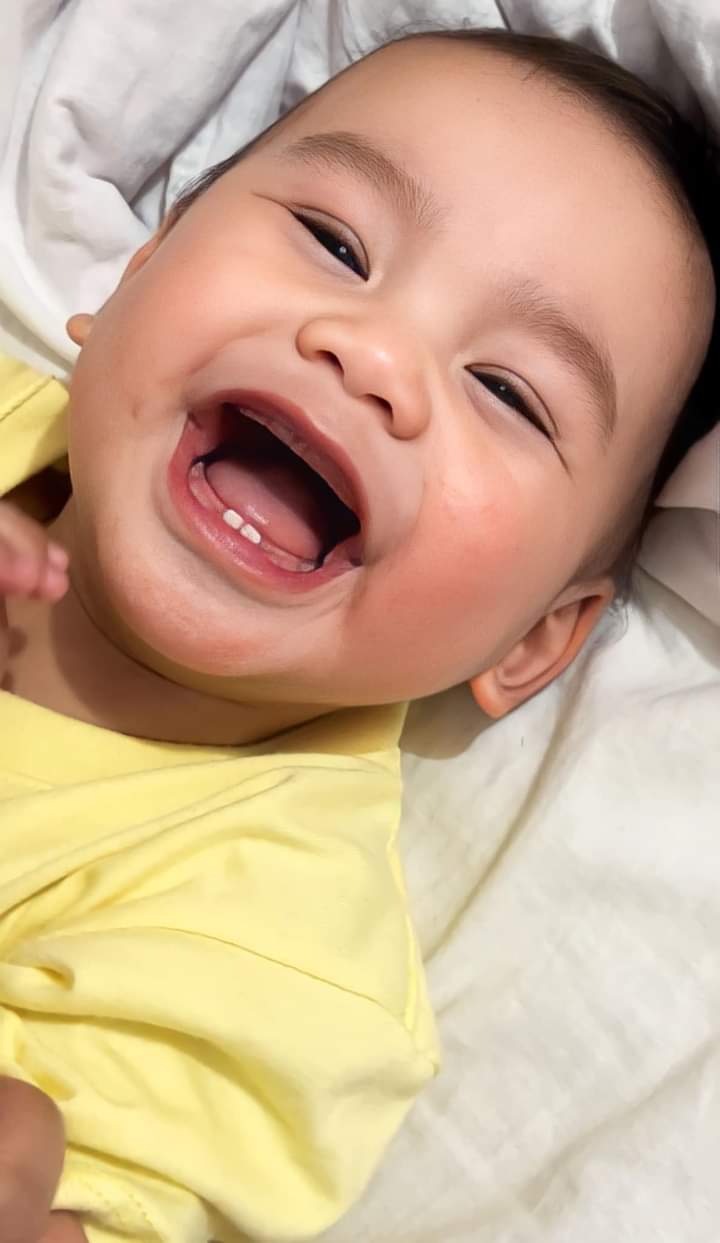Why do babies get fevers when teething?
Demystifying The Teething Fever.
A lot of parents do complain that their baby runs fever while teething. They actually complain of other symptoms too like runny nose (catarrh) and diarrhoea. There arises much controversies on whether the symptoms experienced in babies during the period of teething are due to teething or to something else.
The fact is that teething is a physiological process similar to wound healing, growing of hair or nails which are not supposed to give symptoms but because the poking out of a hard substance through a soft tissue despite being a very slow and gradual process involves some stress it is sometimes accompanied by mild localised fever and sometimes even mild generalised fever which makes the baby’s body a bit warm during the period of teeting whereas in most babies teething is without any symptom besides itchy gums which make the babies rub their gums and drooling of saliva. In some babies, mild crankiness has also been observed.

Usually, however, babies with relatively strong immunity hardly have any symptoms during the period of teething.
Usually when the fever is high or of prolonged duration or when there is runny nose or diarrhoea then these are due to some other illnesses, and not due to teething. But because parents, a lot of times, do notice these symptoms when the child is teething, they readily attribute them to teething as well.
The reason for this strange coincidence, however, is said to be because the stress of teething lowers the immunity in some babies and this state of stress and low immunity pushes out an illness which though is incubating in the body has been suppressed by the strong immunity enjoyed by the body before the onset of teething.
So the Malaria parasites which are already multiplying in the bloodstream and the germs consumed by the baby already multiplying in the guts readily develops into full blown Malaria fever or diarrhoea or gastroenteritis due to the low immunity brought about by the process of teething in the babies.
.
Another mystery about teething that needs to be clarified is the fact that most babies start teething between the ages of five to seven months. At about the same age they start to have their first bout of Malaria fever when the immunity against the fever which they got from their mother starts to run out.
At about the same age, babies start to crawl and pick dirty objects into their mouths which gives them diarrhoea. The Malaria fever is usually accompanied by catarrh and cough. So when fever is experienced due to Malaria, parents attribute it to teething.
When cough and catarrh starts due to the low immunity brought about by the Malaria fever, they are attributed to teething. And when diarrhoea starts due to dietary indiscretion or ingested germs, they are also wrongly attributed to teething.
The coincidence in the time of occurrence of these illnesses with that of teething which readily pushes them out due to the low immunity that it causes make a lot of parents confuse them with the symptoms of teething.
That makes it difficult for parents to differentiate between teething or between teething symptoms and the symptoms of other illnesses and they end of getting confused or attribute all of them to teething.
.
The problem in these wrong assertions for the doctors is that the patients end up presenting late with severe Malaria with anaemia (low blood) or severe diarrhoea with dehydration.
Sometimes the persistent and recurrent high fever results in convulsions and other complications all because the patients have been busy focusing on teething and trying to treat it instead of visiting the doctor early to explain what is wrong with the child in order to arrive at the correct diagnosis on time and treat accordingly.
.
We urge parents to stop assuming the cause of their babies’ symptoms and leave the decision making to the doctor or Paediatrician in order to save the baby from undue suffering which sometimes can lead to serious complications and even death if care is not taken. We need to mention here again that teething is not an illness and it doesn’t cause more than mild localised fever, drooling of saliva and rubbing of the gum in most cases so it does not need any treatment.
Medications like teething powder, Bonababe, Pican, etc are just pacifiers that contain Paracetamol and Chlorpheniramine (Piriton).
The problem with giving these over the counter drugs that are not prescribed by doctors is that the Paracetamol in them reduce the temperature and fever giving a false impression that the Malaria or infection which is the cause of the high fever is already treated and gone, and this can lead to a severe form of Malaria later with vomiting, loss of appetite and can also lead to anaemia (very low blood) which may need urgent blood transfusion and if not done promptly may lead to death.
The untreated infection can also lead to septicaemia (infection in the blood) and full blown sepsis.
Aside malaria, other causes of teething temperature are upper upper respiratory tract infection or outright pneumonia which may manifest as cough, difficulty with breathing and fever.
Causes of the so called “teething fever” in babies:
1. Malaria (especially for babies in Africa)
2. Upper respiratory tract infection
3. Pneumonia
4. Ear infection
6. Skin infection
Questions are welcomed for better clarifications in areas where we may not understand or still find confusing on the issue of teething and its symptoms and treatment.
.
Fuad-deen Olabisi Kekere-ekun
























